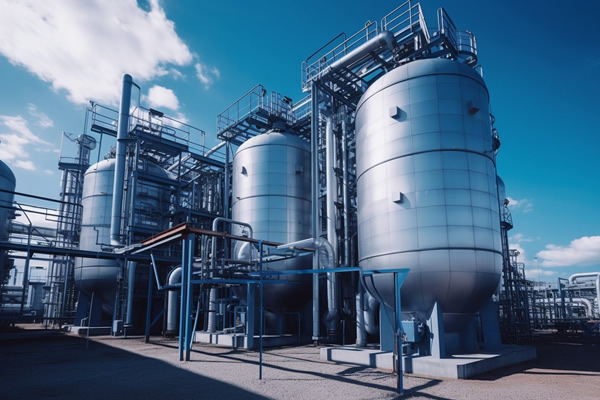Solution polymerization is a polymerization reaction where monomers are dissolved in an appropriate solvent. The polymers formed are sometimes soluble in solvents and belong to typical solution polymerization. The products can be used as coatings or adhesives. If the polymer is insoluble in solvents, it is called precipitation polymerization or slurry polymerization. For example, the production of solid polymers requires precipitation, filtration, washing, and drying to become finished products. In solution polymerization, production operations and reaction temperatures are easy to control, but both require solvent recovery. Industrial solution polymerization can be achieved using both continuous and intermittent methods, and large-scale production often uses continuous methods such as polypropylene.
synthetic resin
Synthetic resin is a polymer compound produced by combining low molecular weight raw materials - monomers (such as ethylene, propylene, vinyl chloride, etc.) through polymerization reactions to form large molecules. There are four common polymerization methods in industry: bulk polymerization, suspension polymerization, lotion polymerization and solution polymerization.
Bulk polymerization method
Bulk polymerization is a polymerization process of monomers under the action of initiators, heat, light, and radiation, without the addition of other media. The characteristic is that the product is pure, does not require complex separation and purification, the operation is relatively simple, and the utilization rate of production equipment is high. It can directly produce high-quality products such as pipes and plates, hence it is also known as block polymerization. The disadvantage is that the viscosity of the material continues to increase as the polymerization reaction progresses, making mixing and heat transfer difficult, and the temperature of the reactor difficult to control. The bulk polymerization method is often used for the production of tree esters such as poly (methyl methacrylate) (commonly known as organic glass), polystyrene, low-density polyethylene, polypropylene, polyester, and polyamide.
Suspension polymerization method
Suspension polymerization refers to the polymerization process in which monomers are dispersed into droplets under the action of mechanical stirring, oscillation, and dispersants, usually suspended in water. Therefore, it is also known as bead like polymerization. The characteristics are: there is a large amount of water in the reactor, the material viscosity is low, and it is easy to heat transfer and control; After polymerization, resin products can be obtained through simple processes such as separation, washing, and drying, which can be directly used for molding and processing; The product is relatively pure and uniform. The disadvantage is that the production capacity and product purity of the reactor are not as high as those of the bulk polymerization method, and continuous production cannot be used. Suspension polymerization is widely used in industry. 75% of polychloroethylene resin is produced by suspension polymerization, and polystyrene is mainly produced by suspension polymerization. Reactors are also gradually becoming larger.
Lotion polymerization
Lotion polymerization refers to the polymerization of monomer to form lotion in water with the help of emulsifier under mechanical agitation or vibration. The reaction product of lotion polymerization is latex, which can be used directly or destroyed, and can be washed, dried and other post-treatment processes to obtain powdery or acicular polymers. Lotion polymerization can obtain polymer with high molecular weight at a high reaction rate. The viscosity of the material is low, and it is easy to conduct heat transfer and mixing. The production is easy to control, and the residual monomer is easy to remove. The disadvantage of lotion polymerization is that the emulsifier added in the polymerization process affects the product performance. To obtain solid polymers, processes such as coagulation, separation, and washing are required. The production capacity of the reactor is lower than that of the bulk polymerization method.



